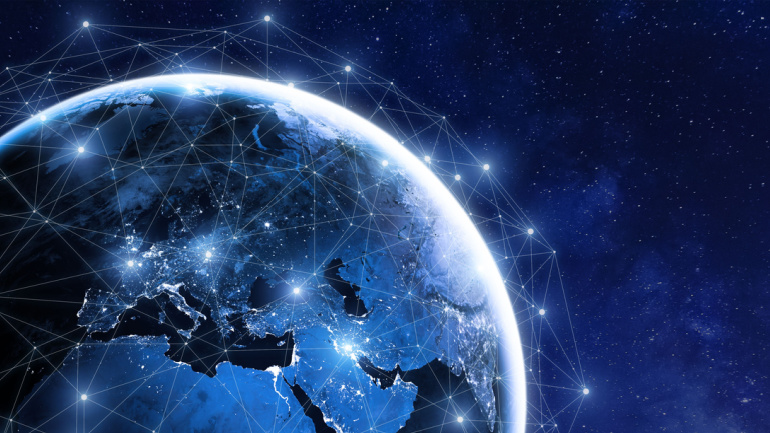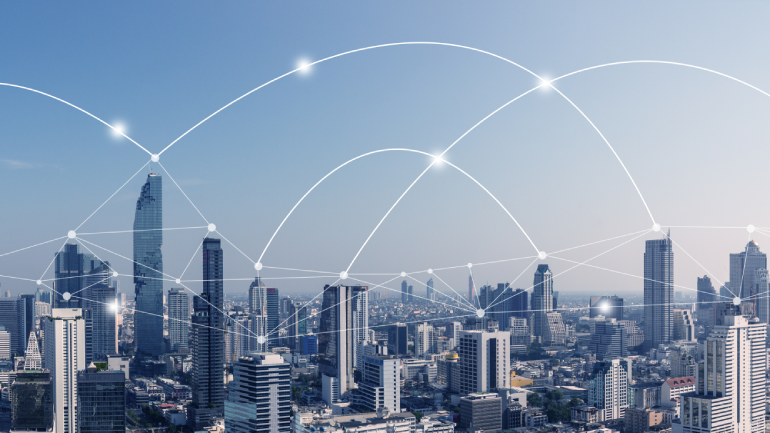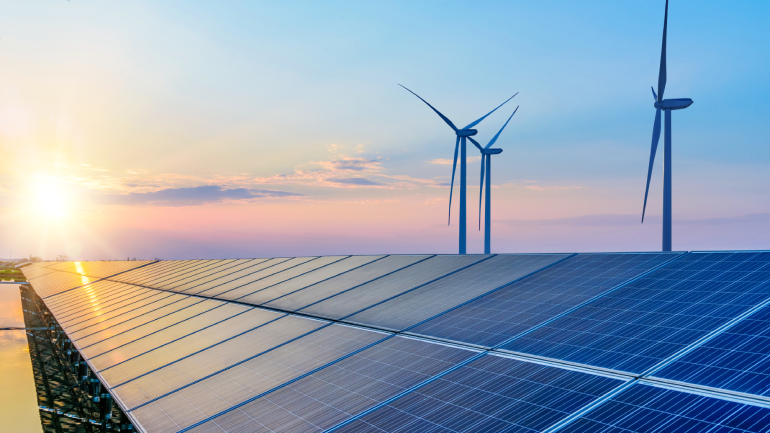Unveiling a battery and solar-powered 5G site in Texas, Ericsson demonstrates an innovative and eco-friendly approach to creating energy-smart network solutions. This next-generation site not only offers enhanced energy management, potentially trimming operational expenses and reducing energy consumption, but also hints at lucrative future revenue streams from selling excess power. As Ericsson continues to explore greener alternatives, it’s intriguing to see how telecom companies worldwide will adopt this sustainable model.
Deutsche Telekom and Ericsson’s recent secure network slice proof of concept simplifies enterprise use with automated configuration and end-to-end orchestration, connecting smartphones seamlessly to private cloud services via 5G. This innovation could revolutionize the telecommunications industry by offering customizable, easy-to-understand connectivity solutions for businesses worldwide.
Ericsson and MediaTek set a new 5G upload speed record of 440 Mbps, enhancing user experiences for video conferences, streamers, and gamers. The groundbreaking achievement utilized Uplink Carrier Aggregation and promises improved network performance in various applications.
Ericsson and Telia join forces to establish the Baltics’ first enterprise 5G network at a key supply site in Estonia, aiming to enhance productivity, agility, and sustainability, while enabling connected use cases like asset monitoring, digital twins, and more. This collaboration also boosts Ericsson’s growing private 5G offerings and emphasizes the potential of private 5G networks in driving innovation across various industries.
China Mobile and Ericsson have announced the launch of two energy-efficient 5G sites in China as part of their efforts to conserve energy and reduce carbon emissions. The Ericsson Smart Site offers new levels of quality assurance, the intelligent administration of various energy sources, full-stack real-time monitoring, and intelligent energy and service synergy. The initial facility, located in Jiangsu Province, runs on the 700MHz frequency and emits no carbon dioxide. The second facility, in Guangdong, operates on the 2.6GHz frequency. Both locations employ Ericsson’s power system, which optimizes the usage of energy from solar, grid and battery sources to provide the most energy-efficient operation possible. The systems also include remote management capabilities using Ericsson Network Manager. Energy conservation and renewable energy have become major technology trends in China. As China continues to prioritize energy conservation and carbon emission reduction, the partnership between China Mobile and Ericsson is well-positioned…
Ericsson has announced the sale of its unprofitable Internet of Things (IoT) division to Aeris Communications, an IoT solutions supplier. The Swedish telecom equipment provider claimed that the transaction, which covers its IoT Accelerator and Connected Vehicle Cloud operations, will end the businesses’ past quarter-to-quarter losses of almost $24 million. Over 9,000 businesses use Ericsson’s IoT Accelerator to handle 22 million eSIM connections and over 95 million connected devices worldwide. For worldwide IoT cellular connectivity, these businesses and relationships make use of Ericsson’s current network of over 35 communications service provider partners. The Connected Vehicle Cloud business, in the meantime, is said to be the most comprehensive connected car platform available today, with automotive IoT leaders utilizing this service to connect over six million vehicles across 180 countries. More than 100 million IoT devices will be connected across 190 countries using Aeris and Ericsson’s combined IoT…
Ericsson has announced that the Committee on Foreign Investment in the United States (CFIUS) has approved its $6.2 billion acquisition of Vonage Holdings. The transaction is scheduled to close by Thursday, July 21. The Swedish vendor’s most significant purchase to date is that of Vonage. This acquisition is a crucial component of Ericsson’s strategy, which calls for creating a market-leading service for businesses. Both the company’s boards and shareholders have approved the $6.2 billion all-cash transaction, but the deal was briefly put on hold while the Committee on Foreign Investments in the United States (CFIUS) looked at it. Following the transaction’s announcement, Ericsson became involved in a controversy in February involving payments to the Islamic State militant organization in Iraq. This incident led to investigations by various U.S. authorities, raising concerns that the deal would be in jeopardy. In spite of Ericsson’s offer price of $21 per…
BT and Ericsson have launched a new cooperative venture in which the two companies will collaborate to deliver private 5G networks to Industry 4.0 clients. The details of the multimillion-pound arrangement have not been released, although it is reported that the partnership duration is to be for several years. Under the terms of the agreement, BT will use Ericsson technology to provide private 5G networks to partners in a variety of industries, including manufacturing, healthcare, and transportation and logistics, with a focus on enabling valuable solutions such as asset tracking, predictive maintenance and automation. Asset tracking, predictive maintenance, networked sensors, real-time data processing, automation and robots are among the industry 4.0 solutions promised. The actual implementation may vary depending on the environment, but the private 5G network, which enables all of these use cases with low latency connectivity, is the main selling point. Katherine Ainley, CEO Ericsson…
The successful demonstration of renewable energy sources in a 5G mobile site has been confirmed by Deutsche Telekom and Ericsson. Both companies collaborated to convert a live radio station utilizing a management system to optimize power supply and demand by leveraging solar and wind energy. The site in Dittenheim, 120 kilometers north of Munich, has been partially powered by solar panels for over a year as part of a prior collaboration between the two enterprises. Wind turbines have now been installed as part of a new trial to increase the site’s renewable energy capability. Acting as a second renewable energy power source, the wind turbine is capable of providing up to 5kW of additional electricity. When the conditions are ideal, the facility may run entirely on renewable energy, eliminating the requirement for use of the electrical power grid. The Ericsson Power System, which handles the two power sources…
Ericsson has ceased operations in Russia in order to comply with international sanctions imposed in the weeks following Russia’s invasion of Ukraine. Nokia, too, has announced its intention to abandon the Russian market, having already ceased supplies and begun to relocate R&D out of the country. However, Nokia intends to continue supporting the maintenance of current equipment on humanitarian grounds. Over the years, Ericsson has collaborated with a number of Russian mobile providers. The company recently formed a strategic relationship with MTS to create private 5G networks, as well as the testing and implementing next-generation technology with the operator. Ericsson has said that it will indefinitely cease relevant operations with Russian clients. The vendor also stated that it is in discussions with customers and partners, and that staff in Russia have been placed on paid leave. In Russia, Ericsson employs around 600 people. In a stock market notification…













